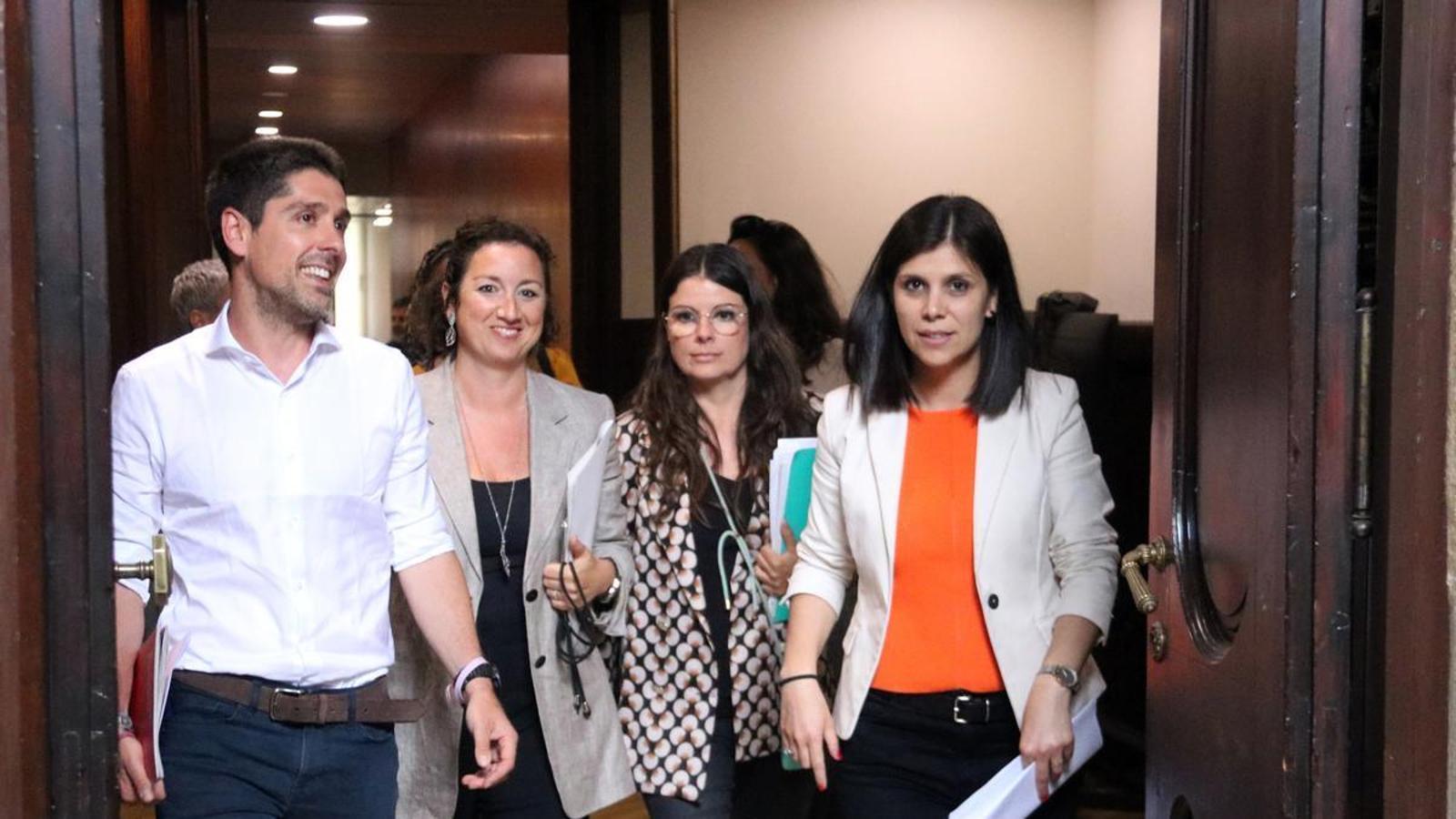Catalan as classroom language and Spanish as curricular language: a four-way agreement to respond to the High Court
PSC, ERC, JxCat and En Comú register a law establishes that the use of languages will be based "exclusively on pedagogical" criteria

BarcelonaFor days political parties have been predicting an imminent agreement on the use of Catalan in schools, but it was not until Tuesday afternoon, just in time for it to be included in this week's parliamentary business, that ERC, JxCat, PSC and En Comú were able to reach an agreement. Last minute complications on the wording of the bill delayed the agreement until it was almost too late, since, according to several parliamentary sources, there was difficulty in finding a formula on the use of Catalan and Spanish in the classrooms that satisfied all parties. In the end, the agreed expression on the role of Spanish and Catalan has been as following: "The teaching and the curricular and educational use of Catalan and Spanish must be guaranteed and have an adequate presence in the curricula and in the educational projects (...) "The scope of the presence [of Spanish and Catalan] must be determined exclusively by pedagogical criteria and individually by each school".
The parties will thus seek to respond the Catalan High Court ruling that demands 25% of classes be taught in Spanish. It joins the executive's decree law that will make the Department of Education ultimately responsible of schools' linguistic projects, thus protecting head teachers from any legal action. Unlike the bill, the decree does not have the Socialists' support. However, the minority coalition government is expected to get it through Parliament with En Comú's votes. CUP has stated it will not support either measure, as it believes it is not confronting the High Court ruling but applying in a covert manner.
From now on, things will go much faster. The Parliamentary Bureau will meet to admit the bill for processing by a single reading, so that Parliament can pass it after a single debate. Once passed by parliament, the Catalan Government will hold an extraordinary meeting to give the new law its final approval.
Even if there is political agreement on the regulation of the use of Catalan and Spanish, this does not mean that the court will consider the 25%-in-Spanish ruling is being respected. In fact, this is one of the issues it will have to assess from May 31, the deadline the Court gave the Generalitat after issuing the forced execution order.
